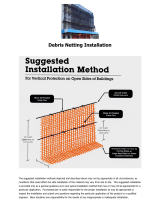
Logging in after Drive Encryption is activated .................................................................... 39
Protect your data by encrypting your hard drive ................................................................ 40
Displaying encryption status .............................................................................................. 40
Advanced tasks .................................................................................................................................. 41
Managing Drive Encryption (administrator task) ................................................................ 41
Encrypting or decrypting individual drives ......................................................... 41
Backup and recovery (administrator task) ......................................................................... 41
Creating backup keys ........................................................................................ 41
Performing a recovery ....................................................................................... 42
9 Privacy Manager for HP ProtectTools (select models only)
Setup procedures ............................................................................................................................... 44
Opening Privacy Manager ................................................................................................. 44
Managing Privacy Manager Certificates ............................................................................ 44
Requesting and installing a Privacy Manager Certificate .................................................. 44
Requesting a Privacy Manager Certificate ........................................................ 45
Obtaining a preassigned Privacy Manager Corporate Certificate ..................... 45
Installing a Privacy Manager Certificate ............................................................ 45
Viewing Privacy Manager Certificate details ...................................................................... 46
Renewing a Privacy Manager Certificate ........................................................................... 46
Setting a default Privacy Manager Certificate .................................................................... 46
Deleting a Privacy Manager Certificate ............................................................................. 46
Restoring a Privacy Manager Certificate ........................................................................... 47
Revoking your Privacy Manager Certificate ....................................................................... 47
Managing Trusted Contacts ............................................................................................... 47
Adding Trusted Contacts ................................................................................... 48
Adding a Trusted Contact ................................................................. 48
Adding Trusted Contacts using Microsoft Outlook contacts ............. 49
Viewing Trusted Contact details ........................................................................ 49
Deleting a Trusted Contact ............................................................................... 50
Checking revocation status for a Trusted Contact ............................................ 50
General tasks ..................................................................................................................................... 51
Using Privacy Manager in Microsoft Outlook .................................................................... 51
Configuring Privacy Manager for Microsoft Outlook .......................................... 51
Signing and sending an e-mail message .......................................................... 51
Sealing and sending an e-mail message .......................................................... 52
Viewing a sealed e-mail message ..................................................................... 52
Using Privacy Manager in a Microsoft Office 2007 document ........................................... 52
Configuring Privacy Manager for Microsoft Office ............................................. 53
Signing a Microsoft Office document ................................................................ 53
Adding a signature line when signing a Microsoft Word or Microsoft Excel
document .......................................................................................................... 53
Adding suggested signers to a Microsoft Word or Microsoft Excel
document .......................................................................................... 53
v






















